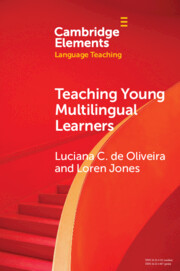Among bilinguals, language-related variables such as first and second language proficiency and balance may be related to important cognitive and academic outcomes, but approaches to characterizing these variables are inconsistent, particularly among at-risk samples of children. The current study employed comprehensive language assessment of English and Spanish language skills and contrasted various approaches to the characterization of language among at-risk ELs in middle school (N = 161). Specifically, we contrasted variable-centered and person-centered approaches, and convergence between objective and self-report measures. Findings support a two-factor structure of English and Spanish language skills in this population, three profiles of students (balanced, moderately unbalanced-higher Spanish, and very unbalanced-higher English), convergence between variable-centered and person-centered approaches, and mixed support for subjective indices of usage. Results provide a foundation from which to examine the roles of L1 and L2 proficiency as well as balance in important cognitive and academic outcomes in this at-risk and understudied population.
